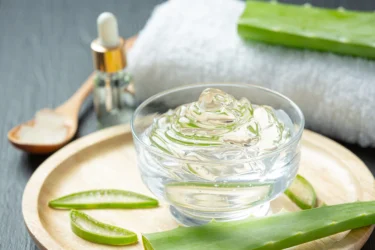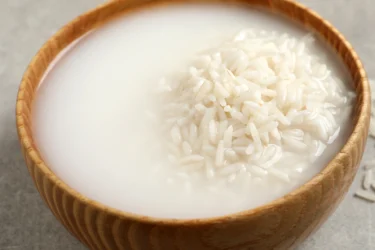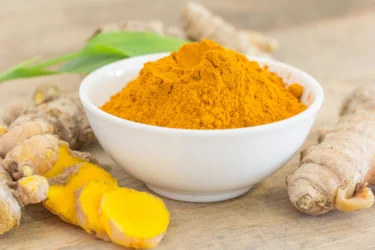Natural Home Remedies for Hyperpigmentation
By Dr Smita Barode +2 more

Get,

to manage your symptom
Get your,


4 Cr+ families
benefitted

OTP sent to 9988776655



You’ve successfully subscribed to receive
doctor-approved tips on
Whatsapp

Get ready to feel your best.

Hi There,
Download the PharmEasy App now!!


Register to Avail the Offer
Send OTPBy continuing, you agree with our Privacy Policy and Terms and Conditions

Hi There,
Sign up on PharmEasy now!!
Trusted by 4 crore+ families

OTP sent to 9988776655



You have unlocked 25% off on medicines




Code: NU25
By Dr Smita Barode +2 more
Table of Contents
A variety of human skin colours are evident across the globe, ranging from the very pale to very dark skin complexion. There are several conditions related to skin pigmentation over this spectrum of skin tones, resulting in problems ranging from hypopigmentation (patches of skin that are lighter than your actual skin tone) to hyperpigmentation (patches of skin that are darker in colour than the surrounding skin)1.
Skin hyperpigmentation occurs when melanin, a pigment that is responsible for imparting colour to the skin, is overproduced in certain areas of the skin. It is important to have a complete understanding of the causes of this condition and the management strategies3.

Hyperpigmentation can be caused by several factors like:
These have an external cause or origin and include:
These have an internal source or origin and include:
Deficiencies of certain vitamins like folic acid, vitamin B12, niacin, vitamin A, tryptophan deficiency, and kwashiorkor (a type of malnutrition due to protein deficiency in the diet) may contribute to hyperpigmentation3.
Studies4 conducted on animals have shown that the use of aloe vera leaf extract, specifically its active compound ‘aloin’, can lead to skin lightening by restricting melanin formation. As a result, aloe vera gel may be employed to alleviate skin hyperpigmentation.
Dr. Siddharth Gupta, B.A.M.S, M.D (Ayu)
Different types of hyperpigmentation and their symptoms include:
Home remedies for hyperpigmentation may help improve the appearance of dark skin patches. Some remedies include:

The gel of this plant is used to manage many skin conditions. It may be useful to reduce hyperpigmentation of the skin. Aloesin is the active ingredient of aloe vera and can potentially control an excess of melanin production and skin hyperpigmentation6. To obtain beneficial effects, you can apply aloe vera gel directly to the affected area. You can also put aloe vera gel in your homemade face masks.

It is known for its antioxidant and anti-inflammatory activities. Green tea has potential skin-lightening effects and may help lighten hyperpigmentation. In one study6, green tea was also found to be effective in preventing skin redness caused by ultraviolet (UV) radiation. To use green tea for skin, you can make a green tea face mask or put green tea in your homemade mask recipes.

This remedy is an effective skin-lightening agent. Soybean is helpful in post-inflammatory hyperpigmentation due to acne. It is also effective in photodamage (changes in the appearance of skin due to UV radiation), facial hypermelanosis (altered facial skin pigmentation), and melasma6. You can add soy to your diet to get the much-needed benefits. Sipping on soy milk is a good option.

This is one of the essential ingredients in several Asian skin and hair treatments. The gel and cream formulations of rice water exhibit skin lightening effect. Rice water may be a helpful remedy for dealing with hyperpigmentation6. There are several ways through which you can make use of rice water.

This home remedy may also be beneficial in managing hyperpigmentation7. To use turmeric for skin, you can make a turmeric face mask. To make the facemask, you can mix small amounts of turmeric, honey, and Greek yoghurt and apply it to your face. You can keep the mask for 15 minutes and then wash it off with water.

Rich in antioxidants, pomegranate may help reduce pigmentation2. To use pomegranate, you can crush a few seeds and use it as an exfoliating mask. Make sure to massage gently as it might irritate the skin. You can also use pomegranate skin oil. You should apply the oil only after cleansing and toning but before moisturising.

The oil obtained from grape seeds is rich in vitamin E and C, potent antioxidants. The antioxidant benefits are useful for dealing with hyperpigmentation8. To use grape seed oil, you can:
Research4 has demonstrated that soy contains fatty acids and isoflavones that hinder melanin production (a pigment responsible for skin colour). Soy-based skincare products are proven safe and effective in reducing hyperpigmentation, with noticeable skin lightening results typically seen after 12 weeks of twice-daily use. Prolonged daily use over 7 months does not lead to adverse effects and the depigmentation effects are reversible. You may therefore use soy-based products to reduce hyperpigmentation.
Dr. Rajeev Singh, BAMS
Also Read: Home Remedies to Keep Dark Circles Away!
You should consult your dermatologist (skin and hair specialist doctor) when you notice symptoms like:
Also Read: Natural Home Remedies for Blood Clots
At times, extra melanin is produced by the skin, resulting in dark spots or patches that contrast with the surrounding skin. Hyperpigmentation is a common skin condition that can, however, make one self-conscious. The causes of hyperpigmentation can be external and internal. Some of the home remedies that can be used to manage hyperpigmentation include aloe vera gel, green tea, soy, rice water, turmeric and pomegranate. However, you must visit a doctor if you notice red, itchy, or painful skin, skin that feels hot on touching, or bleeding or pus discharge from the hyperpigmented skin.
Also Read: Simple Home Remedies For Skin Allergies and Rashes
Hyperpigmentation is a common condition that results in some areas of the skin being darker than other areas. The word ‘hyper’ means more, and ‘pigment’ means colour.
Other treatment options for hyperpigmentation include pigmented lesion laser, cryotherapy, chemical peels, and laser skin resurfacing.
The various types of hyperpigmentation disorders include post-inflammatory hyperpigmentation, melasma, solar lentigines, ephelides (commonly known as freckles), café-au-lait macules (flat, pigmented spots on the skin), etc.
Pigmentation disorders are diagnosed by a doctor by obtaining a proper medical history, physical examination, skin examination, biopsy, and blood tests to check hormones, vitamins, iron, and thyroid function.
Disclaimer: The information provided here is for educational/awareness purposes only and is not intended to be a substitute for medical treatment by a healthcare professional and should not be relied upon to diagnose or treat any medical condition. The reader should consult a registered medical practitioner to determine the appropriateness of the information and before consuming any medication. PharmEasy does not provide any guarantee or warranty (express or implied) regarding the accuracy, adequacy, completeness, legality, reliability or usefulness of the information; and disclaims any liability arising thereof.
Comments

Leave your comment...
You may also like
Comments